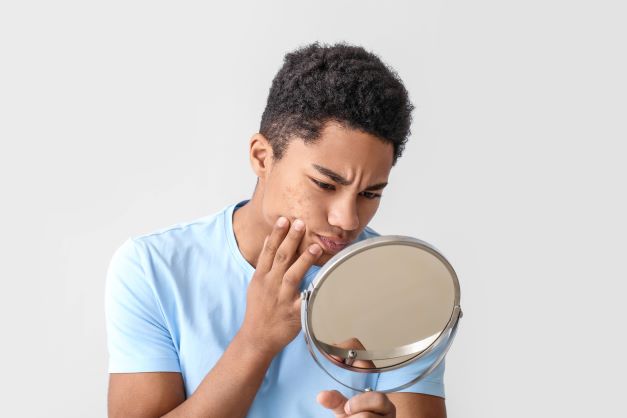Why do kids go to dermatologist?

Dermatologists diagnose and treat children who are experiencing issues with their skin, hair, and nails. They may do things like: Treat skin conditions like birthmarks, dermatitis, eczema, psoriasis, allergic reactions, vitiligo (loss of skin pigment), and others.
Children typically go to their first Dermatology visit between 12-15 years old. In these early teenage years, kids are starting to battle acne, making it a prime opportunity for an initial skin screening.
A lot of people assume that a dermatologist is a specialist that only adults need. However, this couldn’t be farther from the truth! People need dermatologic care at every age. For example, you may notice that your teenager keeps looking in the mirror or complaining about skin blemishes. Not only are they slowly discovering their personal style during this age, they are also experiencing various changes in their skin.

SKIN ABNORMALITIES
Some babies are born with skin abnormalities or conditions. Examples include warts, a large or unusual birthmark, cradle cap, and eczema. Although some of these are harmless, there are times where treatment may be necessary to relieve symptoms or to get the condition under control. A dermatologist is the perfect specialist to assess your child’s condition and recommend treatment.
ALLERGIC REACTIONS
Whenever your child experiences an allergic reaction that affects the skin, a dermatologist should be your go-to professional. Examples of skin reactions to allergies include hives and rashes. A dermatologist can pinpoint the causes of your problems, whether caused by food, pollen, or any allergen, and recommend treatments.
ACNE OUTBREAK
During your child’s pre-teen and teen years, there is a big possibility they will experience a rapid development of acne. Most teenagers experience a combination of skin blemishes, pimples, and blackheads. It is best to seek treatment from a dermatologist if your child is experiencing any of these and :
- Over-the-counter acne treatments are not working
- Your teen’s face is inflamed, red, or painful
- The acne condition is getting worse despite good home care
- Your child is becoming withdrawn or depressed and is losing self-confidence because of the acne
- The acne is leaving scars on the face – these can be time-consuming and expensive to correct later on in life Your teen expresses a desire to see a dermatologist
